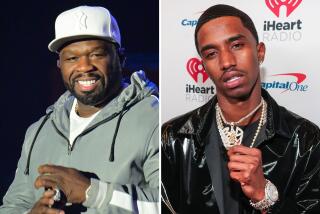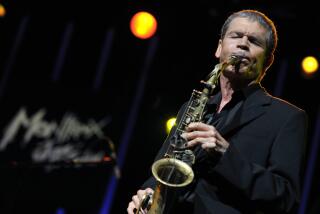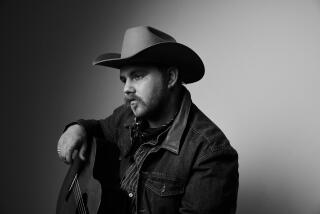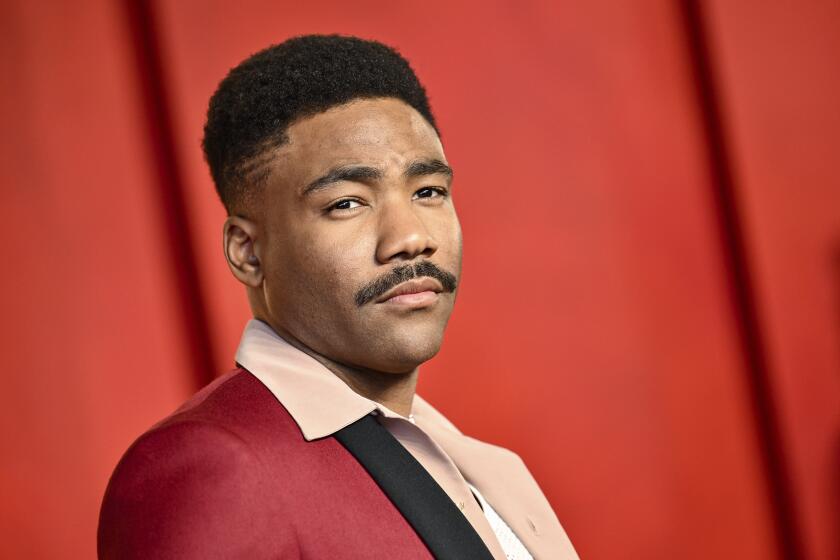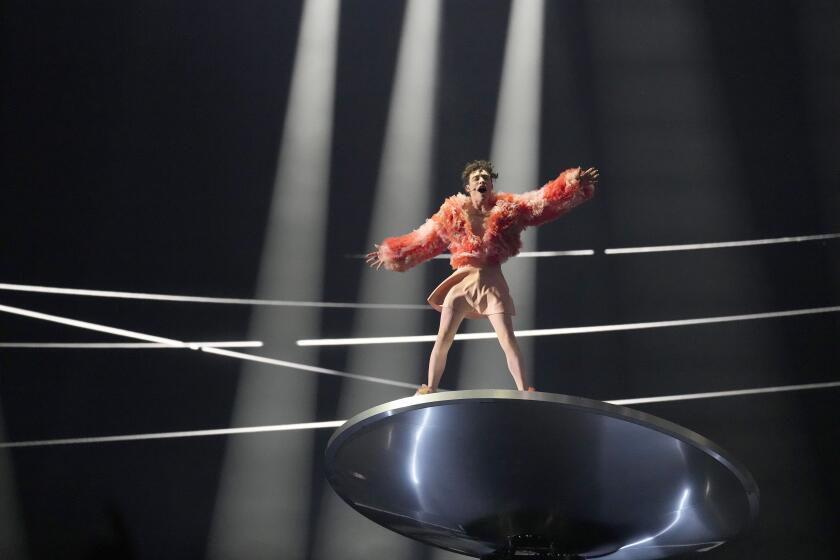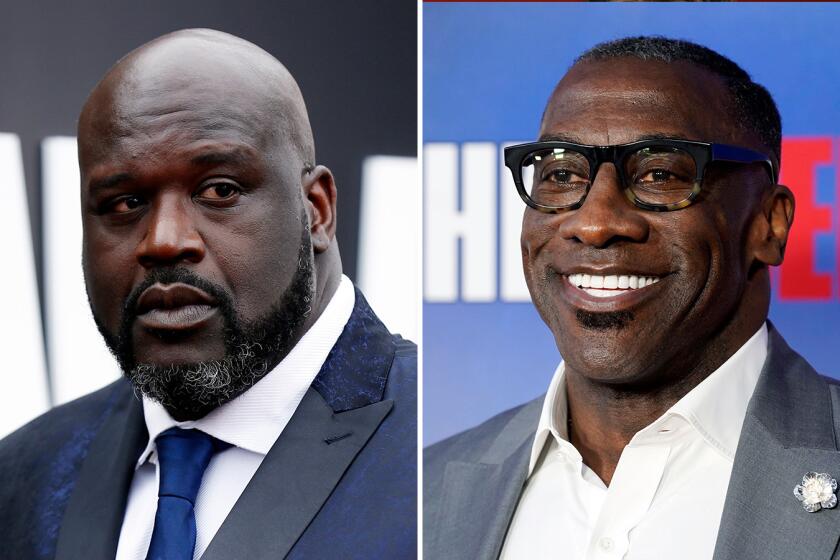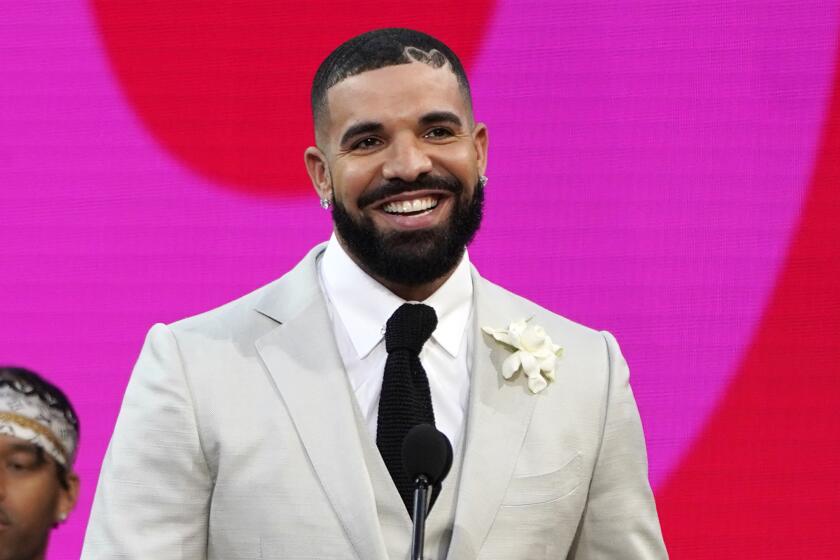Judy Collins a Puzzle but a Grand One
To say that Judy Collins sends a mixed message would be an understatement.
Her background is in the ‘60s folk boom, but Tuesday night she came on stage at the new Irvine Barclay Theatre in a shiny, silver-sequined jacket and black tights--garb that virtually shouted “I am not a folkie!”
But if Collins’ look was almost ready for Vegas, her outlook was in large part a product of those olden folkie-hippie days. Her 80-minute set included hymns to love and peace, a misty recollection of Woodstock, a homage to John Lennon and, of course, “Both Sides Now,” that Joni Mitchell-penned ode to the emerging youth culture’s dizzy, dancing quest for self-realization.
Toss in renditions of a Stephen Sondheim standard, an a cappella Irish ballad, up-to-the-minute adult contemporary pop stylings from Collins’ new album and a smooth, friendly but unrevealing stage manner, and you’ve got . . . well, it’s hard to say just what you’ve got. Pop cosmopolitanism, maybe. But whatever it was, it certainly sounded grand.
If there were a 50-and-over circuit for singers like the one for pro golfers, Collins would make a killing. At 51, her voice sounds richer, bigger and more brilliant than it did on her ‘60s hits. Sometimes with the smoothness of a Cadillac transmission, sometimes with sudden surprise, Collins would ascend to her upper register and hold her notes with an assured vibrato. It wasn’t a matter of grandstanding or straining for effect. Everything Collins sang came with a sense of proportion and exactness, and a focused attention to the meaning of what she sang.
Supporting her was a four-member band that was sweet, clean and responsive, polished but not too slick. Pianist Joseph Joubert was the most valuable player, not just for his sensitive instrumental accompaniments but also for excellent, presence-filled background vocals. Zeb Katz provided firm, supple electric bass lines, similar to the style that’s a foundation of Suzanne Vega’s sound. Electric guitarist Lou Volpe came up with varied, appropriate shadings in his understated solos.
Collins opened strumming a 12-string guitar on “Chelsea Morning” and “Someday Soon,” songs that found her in good voice but not quite emotionally engaged. That missing intensity quickly emerged on “Fires of Eden,” the soft-rock title anthem from Collins’ new album. Deservedly, it received a bigger cheer than the more familiar songs that began the show.
From there, Collins mixed lovingly recreated oldies (including a slow, melancholy “In My Life,” in honor of John Lennon’s birthday, and a sumptuous “Both Sides Now”) with good, new songs.
She turned “From a Distance,” which Nanci Griffith has sung with wispy yearning, into a muscular yet not strident hymn, posing big questions about the possibility of world peace. Collins’ “Fortune of Soldiers” was a darker but still richly melodic exploration of similar themes.
“The Blizzard,” a long narrative a la Harry Chapin, allowed Collins briefly to link her folk and art-song strands and provided a showcase for some of her finest singing. With rippling grand piano, played by Collins, and shivery, crystalline touches from the other musicians, the song took on a chilly instrumental hue that only served as a prelude for Collins’ soaring affirmation at the end, when the blizzard lifts, and with it the protagonist’s troubled emotional state.
A gospel-tinged treatment of “Bird on a Wire” was a bit too polite--one hoped for Collins to cut loose and get a little raw, knowing she wouldn’t because control is the basis of her style. Her only real failure, though, was a song about the Woodstock festival that reminisced with hazy sentimentality about the old hippie gathering. Couplets like “Rain, rain go away, we’re gonna save the world today” should be sung soaked in irony or, better yet, not sung at all.
Still, it was nice to be able to sit in a comfortable, acoustically superior concert theater in Orange County and realize that Woodstock had some relevance for the star on stage. By booking Judy Collins for its second full concert--and the first by a famous name--the Irvine Barclay showed a willingness to embrace music of the rock era. With the exception of one night of Johnny Cash, that’s something that the Orange County Performing Arts Center hasn’t done in three years of operation.
The Irvine Barclay’s 756-seat capacity makes it ideal for pop performers who aren’t big enough to play the county’s two outdoor concrete slabs and want to treat fans to something more formal and conducive to concentrated listening than a club full of cigarette smoke and clinking beer bottles. Jazz, folk, pop and the sort of rock that’s meant to be heard from a sitting position all would go nicely at the Irvine Barclay, especially with the prospect of patronage from a student population close at hand.
It will be interesting to see what the nonprofit theater’s management comes up with to spice a primary diet of dance, theater and classical music. For now, it’s encouraging to step into a theater that looks like a good place for Tom Waits or Ornette Coleman or Ry Cooder and David Lindley to play, and to realize that if they would be willing, so, most likely, would the management.
More to Read
The biggest entertainment stories
Get our big stories about Hollywood, film, television, music, arts, culture and more right in your inbox as soon as they publish.
You may occasionally receive promotional content from the Los Angeles Times.
